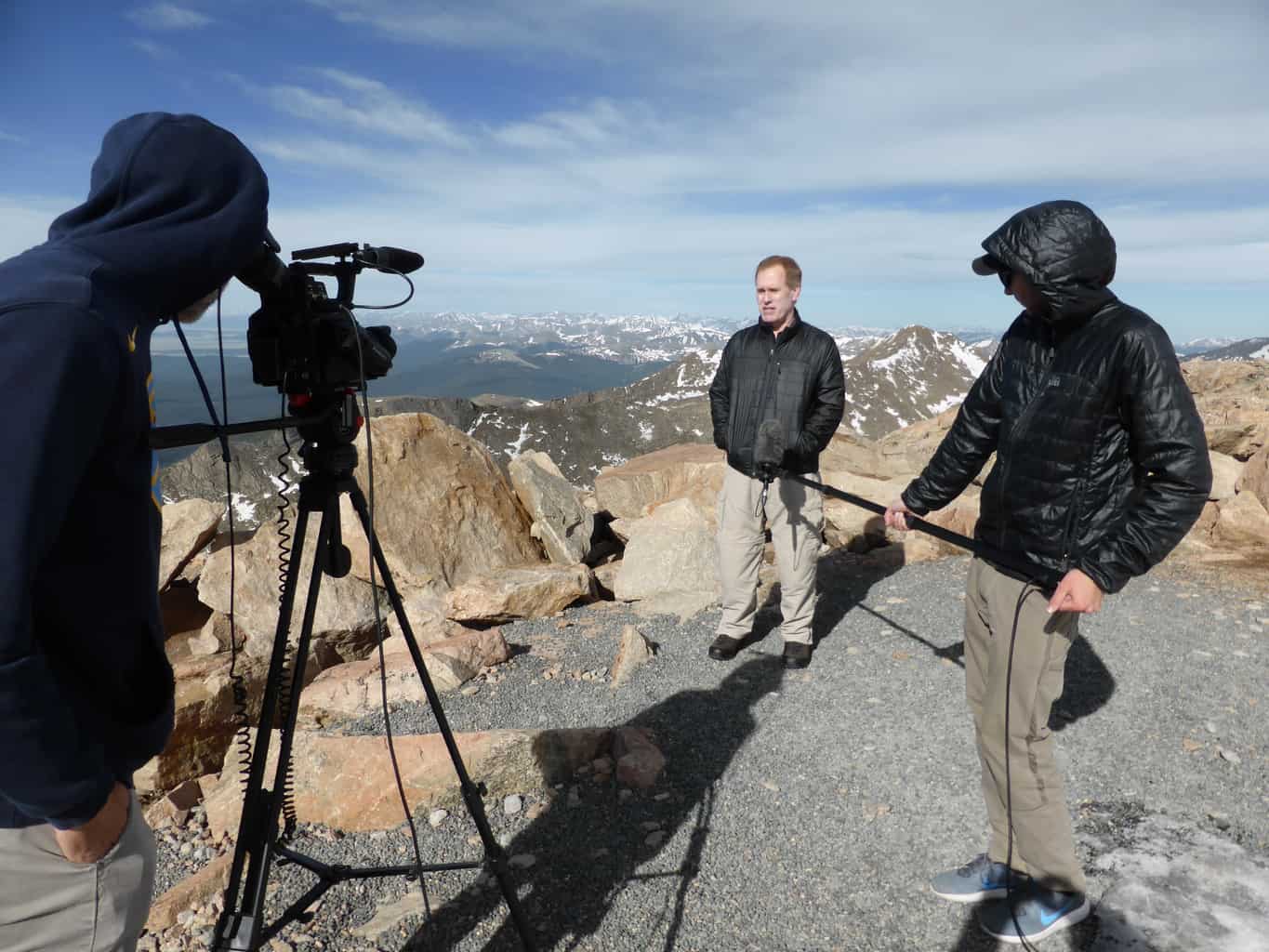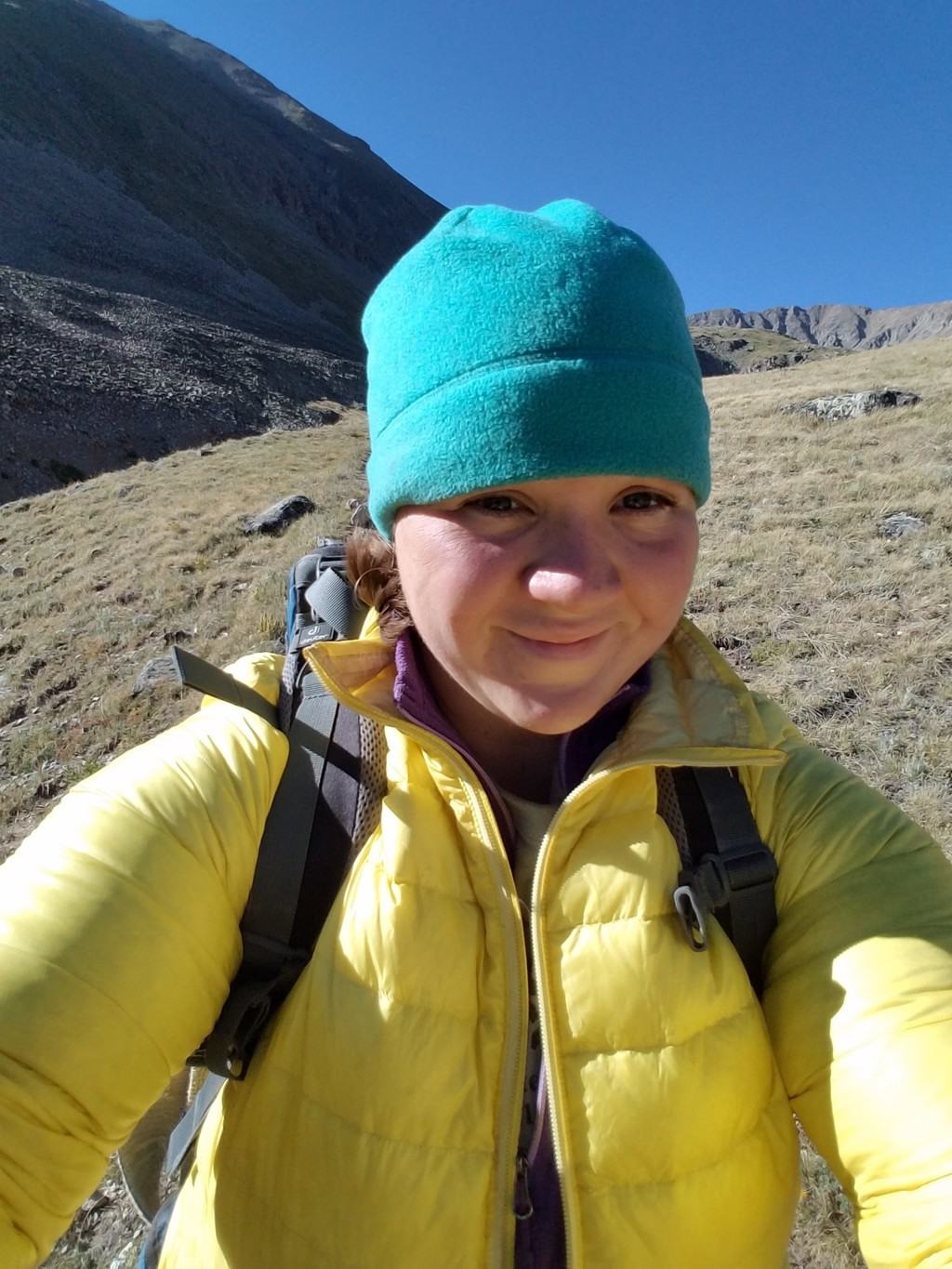Each season I come back to CFI, I strive to be stronger than the previous summer so that I can do the best work on the Fourteeners, and feel my best while working. This season on Mt. Evans, I work at almost 14,000-ft everyday. Acclimating has been an long process. Sustaining the energy for 10 hour work days has been difficult at this altitude. Besides the usual “climb high, sleep low” acclimatization method and just getting back into physical shape, I have been looking for some solutions in blood health, through diet and supplements. In my research, I’ve learned about the relationship between the vitamins and minerals in our blood, our oxygen levels, and altitude.
Blood is comprised of white blood cells, platelets, and red blood cells. Red blood cells contain the necessary vitamins, minerals, and nutrients so that we can pump oxygen throughout our body tissue. Now this is always the struggle at high altitudes, getting enough oxygen. When at altitude, there is not as much atmospheric pressure helping us get as much oxygen with each breath as we might need. On top of this, depending on the iron levels in your blood, your body might not be perfusing it’s optimal amounts of oxygen to your body tissues. Iron is essential in transporting oxygen around your body. In your red blood cells, each atom of iron attaches to one molecule of oxygen. Acclimatizing is really your body taking the time, rest, and nutrients it needs to produce more red blood cells and thus transport more oxygen.

Taking this information into consideration seemed pretty valuable for me as I spend a large part of my life at high altitude, sometimes the highest you can get in the U.S. With a history of anemia (iron deficiency), and learning about how common this is, even monthly for many women as they experience blood loss through menstruation, I’d notice how some weeks I felt especially fatigued- a common feeling with altitude as well as anemia. Also, in my research, I learned that anemia and acute mountain sickness/altitude sickness can have pretty serious compounding effects. And so, to better acclimate and increase my overall health and energy altitude, I’ve looked into some ways to support my blood health.
B VITAMINS (B6, B9, B12)– These vitamins are essential in producing hemoglobin, the protein containing red blood cells. The recommended daily intake of each is: B12 – 2.4 micrograms; B9 – 400micrograms; B6 – 1.3milligrams.
Vitamin A– This is essential for red blood cell development and reproduction, as well as letting our red bloods cells access iron. The recommended amount for women is 700 micrograms and for men is 900 micrograms.
Copper and Iron– Iron directly bonds to oxygen in red blood cells and carries it. Copper helps iron be in the necessary form for it to carry oxygen. The recommended daily amount of iron for women is 18 milligrams and for men is 8 milligrams, and for both 900 micrograms of copper.
Vitamin C– Aids in the body’s absorption of iron. Recommended 65 milligrams per day.

In getting these nutrients, supplements are an option, and I have opted for iron and vitamin C supplements so far. However, food is an awesome, fun and delicious way to seek out the nutrients I need. Leafy greens are very high in all of the above nutrients, I try to eat them everyday. Some other foods high in iron and vitamins are soy, lentils, quinoa, beans, lean meats, and one website highly recommended oysters, so I’ll get right on that. Something really awesome is that cooking in a cast iron skillet or pot will actually boost your iron intake!
While I think iron and vitamins will help me over the course of the season, they are not a short term solution for altitude sickness. They assist in the acclimatization process over a multiple weeks. It is healthiest to not be anemic when heading to high elevation, and supplements and diet can help with that in preparation for a hike or high altitude trip.



